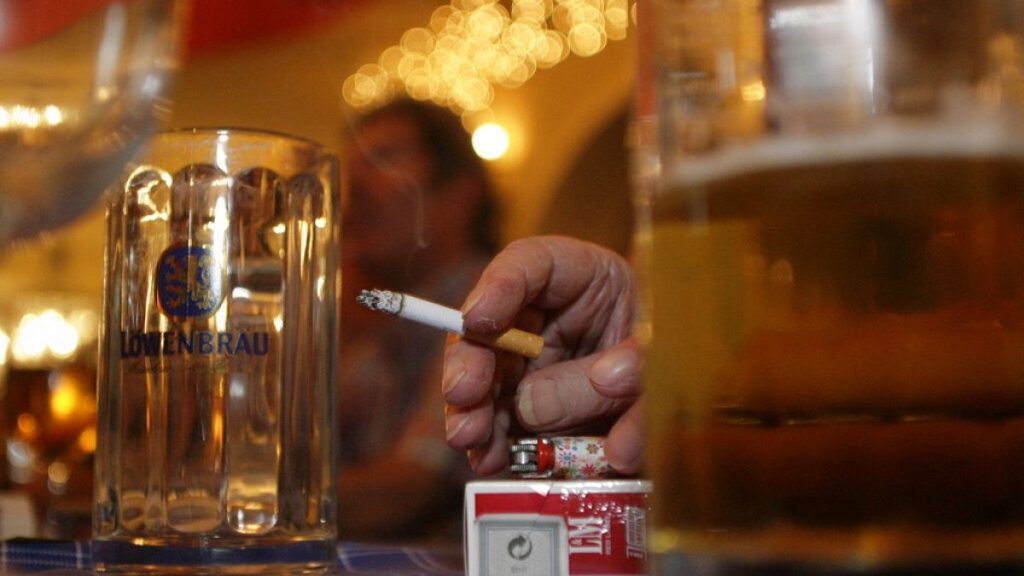Cancer remains a significant health challenge in the European Union, projected to cause nearly three million new diagnoses in 2022, with an anticipated annual increase of 500,000 cases by 2040. Although mortality rates have generally decreased over the past decade, thanks to advancements in early detection and treatment, the overall prevalence of cancer continues to rise. A recent study by the European Commission and the OECD highlights the crucial role of preventable risk factors in the EU’s cancer burden, emphasizing the potential to avert a substantial number of future cases through targeted interventions.
The study reveals that approximately 40% of cancer deaths in the EU in 2021 were attributable to modifiable risk factors, primarily tobacco and alcohol use, and increasingly, unhealthy diets. Tobacco remains the leading cause of cancer-related deaths in the EU, accounting for almost 20% of all such fatalities in 2021. Despite a decline in smoking prevalence across most EU countries, with daily smokers decreasing from 22% in 2012 to 18% in 2022, the impact of tobacco remains profound. The study estimates that achieving tobacco reduction targets could prevent nearly 1.9 million new cancer cases between 2023 and 2050. This underscores the urgency of continued and intensified efforts to curb tobacco use, including stricter regulations, comprehensive public awareness campaigns, and robust support for smoking cessation programs.
Alcohol consumption, another significant risk factor, also contributes substantially to the cancer burden. While overall alcohol consumption saw a modest decrease between 2010 and 2022, significant variations exist across member states. Some countries experienced encouraging declines of 10% or more, while others witnessed increases of similar magnitude, highlighting the need for tailored national strategies to address alcohol-related cancer risks. The study projects that meeting alcohol consumption targets could prevent an additional million cancer cases by 2050, demonstrating the substantial public health benefits achievable through effective alcohol control policies.
Beyond tobacco and alcohol, the study emphasizes the growing impact of unhealthy diets, particularly in relation to rising obesity rates. More than half of adults in the EU are overweight, and adolescent obesity rates have increased in most countries, raising serious concerns about future cancer trends. Addressing these dietary challenges requires a multi-faceted approach, encompassing public education on healthy eating, promotion of accessible and affordable nutritious foods, and regulations to limit the marketing and availability of unhealthy food options, particularly to vulnerable populations. Combined with measures targeting tobacco and alcohol, effectively tackling unhealthy diets represents a crucial opportunity to significantly reduce the future cancer burden.
Air pollution, a less prominent but still significant risk factor for cancer, also warrants attention. The study estimates that addressing air pollution could avert nearly a million cancer cases by 2050. This necessitates comprehensive strategies to reduce emissions from various sources, including transportation, industry, and agriculture. Implementing stricter air quality standards, promoting sustainable transportation options, and transitioning to cleaner energy sources are essential steps towards mitigating the cancer risks associated with air pollution. By integrating these measures with efforts to address tobacco, alcohol, and unhealthy diets, the EU can achieve a substantial reduction in the overall cancer burden.
In response to the evolving cancer landscape, the EU launched the “Beating Cancer Plan” in 2021, aiming to reduce the cancer burden and tackle key risk factors. This ambitious plan sets ambitious targets, including achieving a “tobacco-free generation” by 2040, reducing tobacco use by 30% by 2025, and ultimately reducing the proportion of smokers in the EU to just 5%. However, the plan has faced challenges, including delays in implementing key tobacco control measures, raising concerns about the EU’s commitment to its anti-tobacco agenda. Furthermore, the study highlights the need for increased investment in preventative health measures, as current spending primarily focuses on vaccinations and personal protective equipment rather than broader public health initiatives. Strengthening the “Beating Cancer Plan,” particularly by prioritizing tobacco control and increasing investment in comprehensive prevention strategies, is crucial for realizing the plan’s full potential and effectively reducing the future cancer burden in the EU.














